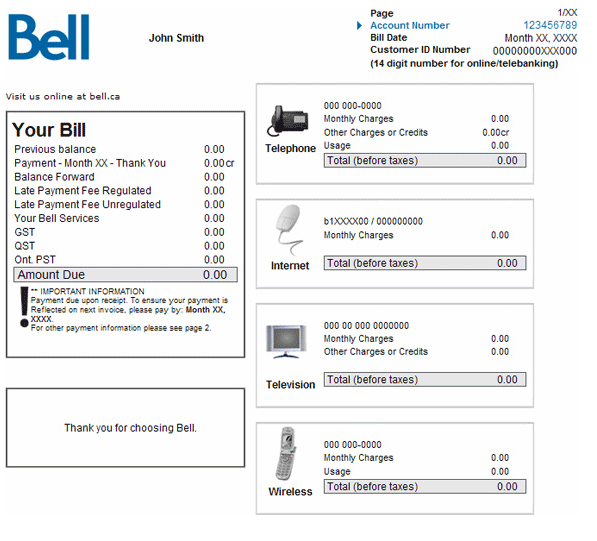 Canadians pay between $495-734 million a year in extra charges just to receive a mailed copy of their monthly bill for cell phone, cable and broadband service. Now the Public Interest Advocacy Centre wants the government to ban charges for mailed invoices.
Canadians pay between $495-734 million a year in extra charges just to receive a mailed copy of their monthly bill for cell phone, cable and broadband service. Now the Public Interest Advocacy Centre wants the government to ban charges for mailed invoices.
Jonathan Bishop, PIAC’s Research Analyst, said, “a majority of consumers have indicated their disapproval of being charged extra for a paper bill. Most Canadians believe supplying a paper bill in the mail without having to pay an extra fee is part of the company’s cost of doing business.”
If you ask most cable, phone and satellite companies about their paper billing policies, they will claim the fees are designed to encourage people to adopt more ecofriendly online billing. But the poor and elderly, who often lack Internet access, are forced to pay extra monthly fees just to find out how much they owe their providers.
Some providers have also been quietly increasing those paper bill fees, which now reach as high as $5.95 a month.
Trying to avoid a more formal regulatory proceeding, the Canadian Radio-television and Telecommunications Commission asked 11 major telecommunications companies to attend an informal meeting last week to negotiate curtailing the fees. The meeting fell apart with providers only willing to exempt certain customers from the billing fees, which have become a lucrative new source of revenue for many.
As of last November, 36 companies said they do not charge for paper bills, while 27 others charged between 99 cents – $5.95 a month. Among those with customer-friendly free paper bills: Shaw Communications, Manitoba Telecom, SaskTel and Bell Aliant. Those charging $2 a month for a paper bill include Rogers Communications, Telus, and Bell/BCE. Rogers and Bell charge the fee for home phone, wireless, Internet and television services while Telus only charges for wireless and Internet bills.
Quebecor Inc.-owned Vidéotron Ltée wants $3 a month for wireless customers seeking a detailed paper bill listing all calls, texts and data used, but a less comprehensive standard bill can be obtained free of charge.
Wind Mobile, one of Canada’s new wireless competitors, charges $4 a month for a paper bill and one of their affiliated companies OneConnect, serving businesses with VoIP service, charges $5.95 a month.
The 11 largely intransigent companies: Bell Aliant, Bell Canada, Cogeco Cable, Eastlink, Globalive, MTS Allstream, Québecor, Rogers, SaskTel, Shaw, Telus only came to unanimous agreement that customers with “no personal or home broadband connection, persons with disabilities who need a paper bill, seniors aged 65 and over and veterans of the Canadian Armed Forces” will be able to avoid a paper bill fee, if charged. The exemptions take effect Jan. 1, 2015.
“While the companies agreed to adopt consistent exemptions to such fees, they were unable to reach a consensus to eliminate them entirely,” said CRTC chairman Jean-Pierre Blais. “Many Canadians who will not benefit from the exemptions will be disappointed with the outcome so far.”
The CRTC is going to further survey Canadians before deciding what actions to take next.
[flv]http://www.phillipdampier.com/video/CTV Telecoms Will Exempt Some from Paper Bill Fees 9-1-14.flv[/flv]
CTV reports consumers are frustrated about rising paper bill fees. The CRTC’s efforts to end the fees ran into profit motives — Canadian companies earn up to $700 million annually from bill printing. (1:48)


 Subscribe
Subscribe
Great report Phillip. I’m convinced there is extraterrestrial life, and the Ferengi have taken over the entire northern hemisphere. When do the janitorial services become a line item on my bill?